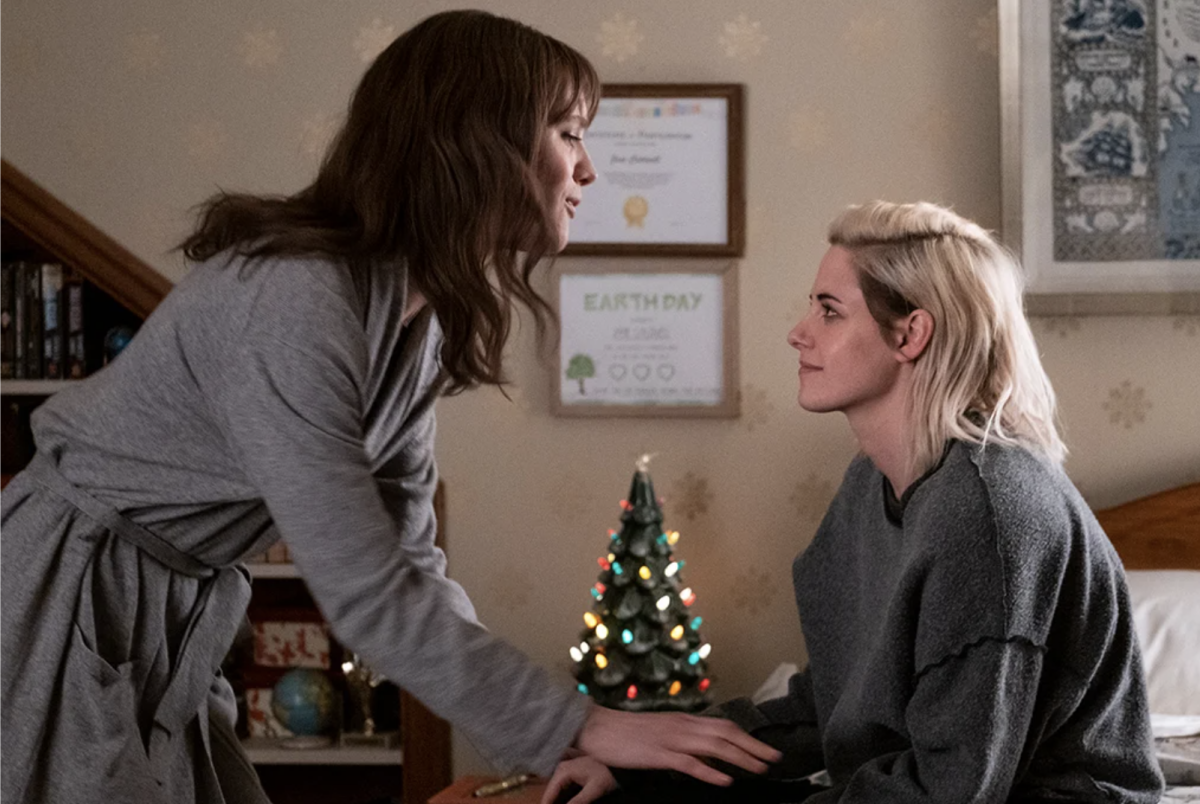When I heard that Kristen Stewart was starring in a Christmas romance, I rolled my eyes at the thought of another Hallmark-esque movie, until I found out that “Happiest Seasons” stars a lesbian couple. Even my mother, who dislikes Kristen Stewart, was happy to sit down and watch the movie with me because it is so rare for a same-sex couple to play the main part.
To be clear, I adored a lot of the film; the entirety of John’s (Dan Levy) character was amazing, especially the background plot of the pets he was meant to take care of. Clea DuVall and Mary Holland, the screenwriters, utilize the conservative family trope to sprinkle in deadpan humor that makes you laugh just by the sheer naivete of a privileged, out of touch family. And this is not even getting into how much Jane (Mary Holland), the black sheep of Harper’s family, was a bright light in the otherwise conservative family.
However, after seeing the movie, I am left feeling discontent. Why does Abby put up with all of this? I thought that surely Abby would end up with Riley, Harper’s ex-girlfriend (played by Audrey Plaza), although this did not happen. In another scenario, I felt like Abby would leave the stifling environment with her best friend John and return to Pittsburgh by herself. But that did not happen, either.
What does end up happening is a series of all-too-relatable moments where being closeted leads to awkwardness. Stewart’s character rambles about a non-existent ex-boyfriend, so when Levy’s character bursts into the home, he has to play that role, even putting on a “straight” accent to add a light humor to what is otherwise a painful experience. I am sure Harper is just meant to represent another facet of that awkwardness — she is not being put back into the closet, but was never out to begin with — but her character crosses the line. From outing her high school ex-girlfriend to spending a night drinking with the ex-boyfriend her parents adored until 2 am, she moves past staying in the closet out of fear and into, simply, being a bad girlfriend.
This is what confused me, especially when John goes from saying “you deserve better” to “she loves you even though she wouldn’t come out.” To me, and many other viewers, the issue was not that Harper refused to come out, but that she was treating her girlfriend terribly throughout the film. When Harper’s sister Sloane (Alison Brie) outs Harper after Abby breaks up with her — for the first time — she finishes her brawl with Sloane by saying she is not a lesbian while Abby watches. While John is right that staying in the closet is not proof that you do not love your significant other, it felt like Harper being with her family highlighted some unresolved issues that she needs help for, especially the impulse they all have for violence.
However, the ending is a tearjerker. The manner in which Harper’s mother (Mary Steenburgen) reacts after finding out, the way Sloane reveals that it is not just Harper hiding things, and Harper’s final cry for another chance are all endearing. While I do not like Harper, she drastically changes after she comes out, which, while somewhat out of character compared to the majority of the film, saves it. While this is not a perfect movie, it is a great watch to support the creation of LGBTQ+ films, especially one with a plethora of LGBTQ+ people in the making of it.





